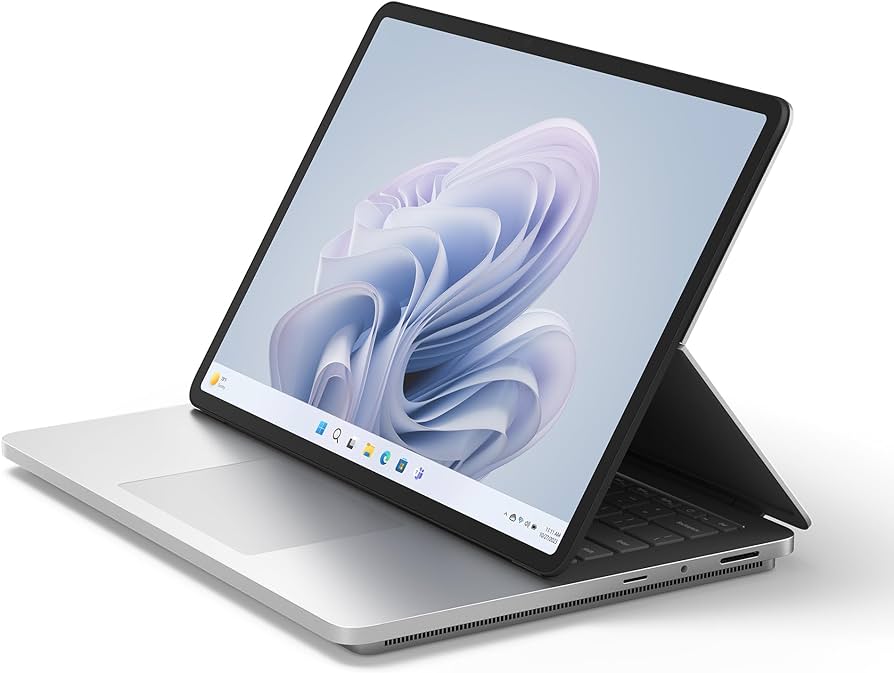For faster overall performance, SSD is more important than RAM in most cases. The debate between RAM and SSD revolves around their distinct functions and benefits.
While RAM is crucial for handling temporary data during running applications, SSD serves as a long-term storage solution. However, depending on your specific needs, the importance of RAM and SSD may vary. This article will delve into the differences between RAM and SSD, their individual roles in a computing system, and how they contribute to overall performance.
Understanding the unique advantages of both components will help you make an informed decision in choosing the most suitable option for your computing needs.

Credit: www.backblaze.com
Understanding The Differences
An essential aspect of optimizing a computer’s performance is understanding the fundamental differences between RAM and SSD. Both are crucial components, but they serve different purposes and have distinct effects on a system’s functionality.
Ram Vs Ssd
RAM and SSD are both integral components of a computer, yet they fulfill different roles in the system.
Definition Of Ram
RAM refers to Random Access Memory, which is a form of temporary memory utilized by a computer to store data that is actively being used. It allows the computer to access data quickly, providing faster recall times when accessing information that is currently in use. However, it is important to note that RAM is volatile, meaning it loses its data when the computer is turned off.
Definition Of Ssd
SSD stands for Solid-State Drive and is a form of permanent storage used for long-term data storage. Unlike RAM, SSDs retain their data even when the power is turned off. They are significantly faster than traditional hard disk drives and provide quicker access to stored data, enhancing the overall speed and performance of a computer.
The Role Of Ram
Function Of Ram
Random Access Memory, or RAM, is an essential component of any computer system. It acts as a temporary storage space for data that the processor needs to access quickly. When you open an application or file, it is loaded into the RAM to facilitate fast access. Essentially, RAM holds the data that the CPU (Central Processing Unit) is currently using.
Impact On Performance
The amount and speed of RAM directly impact the performance of a system. Insufficient RAM can lead to slow and laggy performance, especially when multitasking or running memory-intensive applications. On the other hand, having ample and fast RAM allows for seamless multitasking, quicker loading times, and overall improved user experience.
The Role Of Ssd
When it comes to computer performance, both RAM and SSD play crucial roles. In this blog post, we will discuss the importance of SSD in enhancing the overall performance of your computer. Let’s start by understanding the function of SSD.
Function Of Ssd
SSD stands for Solid-State Drive. Unlike traditional mechanical hard drives, SSDs use flash memory to store data. The main function of an SSD is to provide fast storage and retrieval of data. With no moving parts, SSDs are not only faster but also more durable than traditional hard drives.
Impact On Performance
SSDs have a significant impact on the overall performance of your computer. Here’s why:
- Improved Boot Time: SSDs significantly reduce the boot time of your computer, allowing you to start working or gaming in a matter of seconds.
- Faster Application Launch: With an SSD, applications load much faster, reducing waiting times and increasing productivity.
- Quick File Transfers: SSDs offer faster transfer rates, enabling quick and seamless file transfers, whether it’s copying large multimedia files or backing up data.
- Reduced Loading Times: SSDs drastically reduce loading times in games and other resource-intensive applications, providing a smoother and more enjoyable experience.
Additionally, SSDs consume less power and produce less heat than traditional hard drives, contributing to better energy efficiency and a cooler operating environment for your computer.

Credit: www.amazon.com
Choosing The Right Component
When it comes to optimizing the performance of your desktop or laptop, choosing the right components is crucial. Two essential components that greatly impact overall performance are the RAM and SSD. However, determining which is more important can be a challenging task. In this section, we will delve into the factors you should consider when deciding between RAM and SSD, ensuring you make the right choice for your specific needs.
Considerations For Usage
Understanding how you intend to use your computer is vital in determining whether RAM or SSD should take precedence. If you primarily use your computer for tasks that require a large amount of memory, such as video editing or gaming, then investing in ample RAM would be a wise decision. RAM, or Random Access Memory, plays a significant role in the speed and multitasking capabilities of your computer. Having more RAM allows your computer to store and access frequently used data quickly, resulting in faster processing times and smoother multitasking.
On the other hand, if you work with large files or frequently use resource-intensive programs, an SSD, or Solid State Drive, may be the component to prioritize. An SSD functions as a storage device, providing faster data access and transfer speeds compared to traditional hard drives. This can greatly improve the overall responsiveness and loading times of your system, benefiting tasks such as booting up your computer, opening applications, and accessing files.
Budget Considerations
While both RAM and SSD upgrades can significantly enhance your computer’s performance, budget considerations play a crucial role in making the right choice. RAM upgrades tend to be more affordable, allowing you to increase your computer’s memory without breaking the bank. If you are working with a limited budget, upgrading your RAM can provide a noticeable improvement in performance.
However, if you have a higher budget and are looking for a substantial performance boost, investing in an SSD can be a wise decision. While SSDs are generally more expensive than traditional hard drives, their benefits in terms of speed and reliability make them a worthwhile investment. Furthermore, if you are dealing with a computer that already has a sufficient amount of RAM, upgrading to an SSD can offer a more significant performance gain.
Ultimately, the decision of whether RAM or SSD is more important depends on your specific usage patterns and budget constraints. Considering the considerations for usage and budget considerations we discussed, you should be able to determine the right component to prioritize. Remember, both RAM and SSD play vital roles in enhancing your computer’s performance, and a combination of both can lead to an optimal computing experience.
Optimizing Your System
When it comes to optimizing your system performance, one of the key factors to consider is the balance between RAM and SSD. Both RAM (Random Access Memory) and SSD (Solid State Drive) play crucial roles in enhancing the overall speed and responsiveness of your computer. In this article, we will explore the importance of both RAM and SSD and how they can work together to maximize your system’s performance.
Combining Ram And Ssd
Combining RAM and SSD is a winning combination that can greatly enhance your system’s performance. While RAM provides quick access to data that is actively used by your computer, SSD ensures fast storage and retrieval of files and programs. Together, they reduce load times, improve multitasking capabilities, and deliver an overall smoother and more efficient computing experience.
Here’s how you can optimize your system by leveraging the power of RAM and SSD:
1. Upgrade your RAM:
Increasing your RAM can have a significant impact on your system’s performance. With more RAM, your computer can handle multiple tasks simultaneously without slowing down. This is especially beneficial if you work with memory-intensive applications like video editing software or virtual machines. Consider upgrading your RAM to maximize its potential.
2. Utilize SSD for storage:
By installing your operating system and frequently used programs on an SSD, you can take advantage of its lightning-fast read and write speeds. This ensures that your system boots up quickly and your applications launch in a snap. Additionally, moving large files and performing data backups becomes faster and more efficient with an SSD.
3. Optimize RAM usage:
Make sure to close unnecessary applications and processes that consume a significant amount of RAM. By freeing up memory, you allow your system to allocate more RAM to the applications you actively use, resulting in improved performance and responsiveness.
4. Implement virtual memory settings:
Virtual memory allows your computer to use a portion of your hard drive as an extension of your RAM. By adjusting the virtual memory settings, you can fine-tune the allocation of resources and improve system performance. However, keep in mind that having too little or too much virtual memory can have adverse effects, so make adjustments carefully.
Additional Tips
In addition to optimizing the combination of RAM and SSD, here are a few more tips to further enhance your system’s performance:
- Regularly clean up your system by removing unnecessary files, temporary data, and unused applications.
- Defragment your hard drive to improve file access speed.
- Keep your operating system and software up to date to benefit from the latest performance enhancements and bug fixes.
- Invest in a high-quality power supply unit to ensure stable performance.
- Consider using an external SSD as a dedicated scratch disk for memory-intensive tasks.
By following these optimization tips and striking the right balance between RAM and SSD, you can unleash the full potential of your system and enjoy a faster, more efficient computing experience.

Credit: www.facebook.com
Frequently Asked Questions For Which Is More Important Ram Or Ssd
Q: Is Ram Or Ssd More Important For Performance?
A: Both RAM and SSD play crucial roles in overall system performance. RAM affects multitasking and running multiple programs simultaneously, while an SSD improves boot times and data access speed. Depending on your needs, prioritize the one that aligns with your usage patterns and budget.
Q: How Does Ram Affect Computer Speed?
A: RAM, or Random Access Memory, directly impacts computer speed by providing fast access to data required by the CPU. The more RAM you have, the more information the computer can store in its immediate working memory, reducing the time spent retrieving data from slower storage devices like hard drives, thereby improving performance.
Q: What Are The Benefits Of An Ssd Over Ram?
A: Although they serve different purposes, SSDs offer several advantages over RAM. An SSD improves data transfer rates, boot times, program loading speed, and overall system responsiveness. It provides more permanent storage, whereas RAM holds temporary data that is lost when the system shuts down, making an SSD essential for long-term data retention.
Conclusion
To sum up, both RAM and SSD play crucial roles in a computer’s performance. While RAM determines multitasking capabilities and overall speed, SSD enhances storage and data transfer rates. Ultimately, the importance of each component depends on specific usage requirements.
It’s essential to assess the intended purpose and budget before making a decision. By understanding the nuances and benefits of both RAM and SSD, users can optimize their computing experiences.


